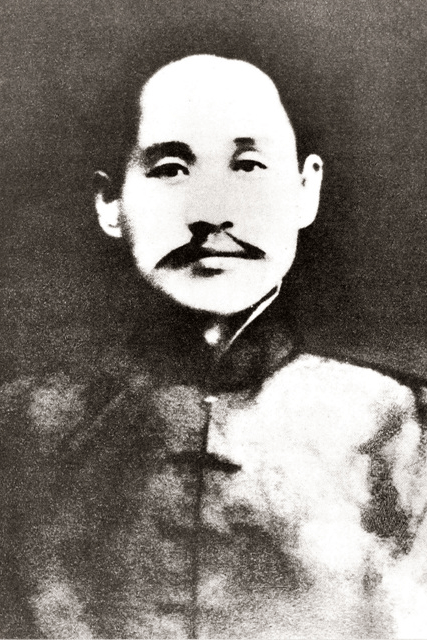Moon Door: Versions of Korean Sijo
by Kim Keong-p’il, Sin Chae-ho, Sŏ Kyŏng-dŏk, Yi Sun-sin
Before the Korean alphabet (han’gul) was invented in the fifteenth century, Korean poetry was written in Classical Chinese characters, using the disciplined conventions of the T’ang Dynasty. Korean poems written in Chinese (hansi) reached a particularly beautiful level in the late eighth century, when Korea was united under the Silla Kingdom. A popular vernacular alternative form, sijo, also written in Chinese, originated as early as the eleventh century. This relatively simple three-line song form began to flourish around the time that han’gul was being promulgated. Sijo was closer to Korean sensibilities and ethos and more flexible than Classical Chinese poetry. Sijo could be narrative or lyrical, formal or emotional. Many fine sijo in Chinese were later translated into han’gul.
SIN CHAE-HO
Sin Chae-ho (1879–1936) struggled against the Japanese Occupation in the years before 1910, when he fled to China. The Japanese captured him in Manchuria, and he died in prison. “A Veteran Comes Home” alters the metaphors of the original but renders terror and love as simultaneous parts of human experience.

A Veteran Comes Home
Sometimes life feels like
double Dutch,
something whipping underfoot
and something whistling
overhead and everyone chanting.
Hey, you kids! A riddle: which needs
more skill—the jumpers
or the twirlers? Two to scream
with terror, two with rapture—
KIM KEONG-P’IL
Kim Keong-p’il (1454–1504) was a court scholar during the reign of the tyrant king Yeŏnsan-gun, noted for his brutality and for capriciously executing advisors who disagreed with him. Even those who were silent risked his wrath. Kim was forced into exile in the 1498 Literati Purge and killed by Yeŏnsan-gun in 1504. Wŏnju, a provincial capital, has seen numerous rebellions and battles over the last thousand years.

Remembering the Battle of Wŏnju
Digging a posthole in the rain
to repair the broken fence—
what a miserable chore. No matter
how many times I measure and plumb,
the result is a mess, the cows
will come in with the wild pigs
and the feral dogs; the goats and sheep
will slip out with no effort at all.
This is what it is to be human.
ADMIRAL YI SUN-SIN
Yi Sun-sin (1545–1598) commanded the forces that turned back the invasion by Japan lasting from 1592 to 1598. “On the Battlements” is said to have been written on the night before the decisive dawn battle in which Yi was killed. Love can cut the heart as deeply as a sword or the sound of a flute. The woe of romantic love is very like the distress felt for one’s country.

On the Battlements
When we were young, our love
was the most formidable weapon
we could imagine. We carried it
like a great sword, respectful
of its danger. More than once
it flashed like an angry sunburst!
On this moonless night on Hansan Island,
pierced by the dark note of a far-off flute,
we carry the same sword
and much more, equally terrible—.
SŎ KYŎNG-DŎK
Sŏ Kyŏng-dŏk (1489–1546) was a brilliant scholar who chose to live an indigent life in a humble cabin rather than serve at court. At one time, he tutored the great, legendary courtesan (kisaeng) poet Hwang Chin-i when she was young. Hwang Chin-i’s kisaeng name was Myong-wol, “Bright Moon.” This translation freely adds goats and mold.

Just a Theory (for Hwang Chin-i)
Foolish, foolish ambition.
So what have I managed to build
on this remote island, on this
cold mountainside?
A shack, a paddock for goats,
an old library of moldering leaves.
Who could find me here after
so many years? Maybe one ancient
friend or another? Perhaps
the Bright Moon . . . if she comes back—?
Published on March 24, 2016

